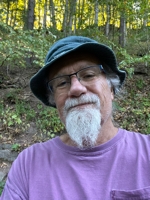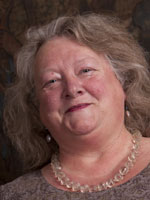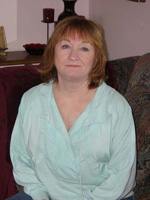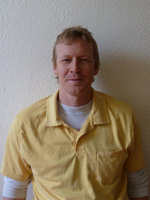Issue Number 13, Summer 2011
Contents
- Ocean View Homes - New Construction by Ruth Coffey
- The White Whale by Derrick Paulson
- Backyard
Inch Worms by Marjorie Maddox - Birding by John Smith
- Evacuation by Laura Sobbott Ross
- Explanation by Molly Fisk
- Here, Where Once She Was by K.R. Copeland
- How I Come to Know by Alicia Vandevorst
- Lovely Without Us by Kathryn Hinds
- Rising over California by Zara Raab
- The Houses That Jack Built by Eileen Malone
- To My Love by Ben Cromwell
Archives: by Issue | by Author Name

Ocean View Homes - New Construction
by Ruth Coffey
Originally from Ireland, Ruth now lives on the south shore of Lake Erie in the Black Rocky watershed.

You brought me here on Sundays when I was a child,
walked over centuries of roots, gnarly path to the beach.
But now I can see waves from the road’s curve,
the shape of evergreens glaringly absent,
an echo of spindle skyline piercing clouds
passing, delicate, light like eyelashes.
I imagine I can still smell forest,
damp bark, syrup sap, salty green scent
of needles, carpets of them, now swallowed
by openness reaching to a thin stripped strand
where sand shifts with the weight of footprints,
time sieves, shaded in memory of trees.
Last Sunday I was here, you were alive.
© Ruth Coffey

The White Whale
by Derrick Paulson
Derrick lives among the pines forests and placid lakes of the Crow Wing watershed in central Minnesota.

“The white killer whale spotted in Alaska's Aleutian Islands sent researchers and the ship's crew scrambling for their cameras. The nearly mythic creature was real after all.” – (AP)
Yes. I saw it with its white fin and back.
Saw it before those scientists did,
with their cameras flashing like reflecting ice.
I was near enough the islands and ocean
to feel the pull that each has on the spirit.
Near enough, I could have hurled my oar like the spear
my father’s father threw at such beautiful beasts.
But their ship passed too fast; the waves startled it.
The whale dived deep below the surface
and the best pictures were those I took in.
The ripples that reached my kayak barely
broke against the sides as I gummed Crisco
and blueberries and dreamed of blubber,
of oily smoke rising above stretched skins
near whittled, white bones.
© Derrick Paulson

Backyard
Inch Worms
by Marjorie Maddox
Marjorie lives in Williamsport, Pennsylvania, near the Appalachian Mountains in the Lower West Branch Watershed.

What miles
they'd
make!
Unclung
from wisps
hung faith-
fully from
twig and
eaves, they
measure
scrunched
rhythms,
punt them-
selves past
yardsticks of
yard,
arrogant
and errant
in the hole
y air,
thumbing meticulous
noses
at thumb-
elinas and
anchored
ants. Now
on top, these
runts of the underworld,
swing
acrobatically
their high-
wire
threads
onto our un-
kempt
heads.
© Marjorie Maddox

Birding
by John Smith
John lives on the New Jersey side of the Delaware River in the Lower Delaware watershed.

Do you remember your first bird,
the way it scuttled across the lawn, stopped stiff,
tilted its head, and listened to the earth?
Don’t you still need to hold still sometimes
and feel the world underfoot?
Aren’t you plucked from this life
by such singing as unthreads each day,
struck by shadows soaring past your feet
and scaling the very buildings
that tower in your way?
Isn’t a black silhouette perched in every tree?
Who among us hasn’t sat up with the owls
interrogating the night?
Who hasn’t been knocking on dead wood for years,
flapping through life, season by season,
squawking and warbling, warbling and squawking,
migrating, migrating, migrating?
Don’t we all live on the wing,
teetering in the wind,
from one nest to the next,
compelled by our own singing?
Previously published in the Literary Review
© John Smith

Evacuation
by Laura Sobbott Ross
Laura lives in central Florida in the Upper St. John's Watershed.

Damn, the fuel tanks are empty again.
Coastal dwellers and suburbanites
have raided our rural outpost,
have sniffed the scent of gasoline
from beyond the orange groves and the bait shop,
and the El Mercadito Del Pueblo.
They don’t even sell lottery tickets here,
for God’s sake.
We will wait out the hurricane at home again,
at an equilateral distance from both coastlines
beneath the umbrella of the live oak trees,
limbs weighted with Spanish moss,
trunks as thick as silos.
Right now the sky is still
a magnificent shade of pale oblivion.
Even as the cows bow their heads
into the pasture grass
and the wild morning glories
twine fence posts like bulwarks—
out on the highways and the back roads,
and in every available hotel room,
the masses huddle and ponder
the premonitions of satellites.
© Laura Sobbott Ross

Explanation
by Molly Fisk
Molly lives in the south fork of the Yuba River's watershed, about 50 feet from Rush Creek, which does rush in winter but is dry in summer, helping her remember that seasons change, disappear, are reborn, and so are we.

Finally I just gave up and became an animal.
I slept when I was tired,
sometimes dropping in mid-stride,
curling into a knot on the sunny floor.
I ate raw food at odd hours,
wiped my mouth on the back of my hand,
stopped brushing my hair.
The phone rang, but I didn’t answer it.
Mail lay unopened on the stairs. Flowers
drooped in dry pots. Dust sifted down
from the ceiling in hazy swirls.
I left the windows open.
After a few weeks I grew
accustomed to it, sank deeper
into my actual body, learned to love
the hours as they passed.
I let go of the spinning
human world and walked in the hills at night
under a changing moon.
Deer swung their heads toward me.
I sat beside them in their beds of creaking grass
listening to crickets ticking in the heat.
I cooled my skin in the ocean, licked
the crusted salt from my arms.
In time, my throat forgot to speak,
it lost the bright angles of consonants,
the dark sloping vowels. It joined the chorus
of mute life with a kind of hum.
reprinted from Listening to Winter (Roundhouse/Heyday Press, 2000)
© Molly Fisk

Here, Where Once She Was
by K.R. Copeland
K.R. lives in the Chicago River watershed.

Barked things stark against the bay begin to bristle. A dance of hands disfigures curves; murder on the footpath. Sadness gasps, endures unnerving birdcalls. The air is chill and still a little wet long after rainfall. A saltiness aggressively sets in. Who gives a shit if minnows swim these shallows – or if they decorate them belly up? I know enough to know this much; there’s no hope in the boathouse, no shark fin that can fix the sick of us.
© K.R. Copeland

How I Come to Know
by Alicia Vandevorst
Alicia lives in the Yuba River Watershed. The window above her writing place faces south, through an opening between Ponderosa Pines.

It is only once the truck lumbers down
and its squealing breaks the quiet of the ground
that steadies our house, that I know they took the trees.
I see the lacerated trunks and feel forth
with the palms of blind connection to find the welts
within the forest, the runny stumps, the ruptured space.
What that place held, tip to tip, root
to root, the combs of airs, transparently housed,
has been crossed out and the mute declaration
of scars, the annunciation of force, is left to drive
the future of that woodland. I am amazed
I did not feel them go.
© Alicia Vandevorst

Lovely Without Us
by Kathryn Hinds
Originally from the southern shore of Lake Ontario, Kathryn now lives in the southern Appalachians, in the Upper Chattahoochee watershed.

The earth’s work never stops; it will go on
long after we have quit the scene. In fact
the air may breathe relief when we are gone--
and think of all the species left intact,
and of lands unravaged by relentless lust
for coal and metal, timber, gems, and oil....
Earth will be lovely. But then, we’ll be dust--
organic matter in some forest’s soil,
washed piecemeal to the sea with each new storm,
our sediments compressing into stone,
while a tree bleeds insect-trapping sap to form
the future’s amber, holding frozen one
brief moment of a brief-lived life.
Time both forgives and mocks our transient strife.
© Kathryn Hinds

Rising over California
by Zara Raab
Zara lives at the headwaters of the Russian River, a few miles from Vichy Hot Springs east of the Pacific Coastal Range.

Cessna humming, he mounted
the air, climbing above a land
once rich, now adust from use.
Bronco of the clouds, he saw
the land spread out like a strand
of flesh, a woman burning
on her pyre––Shasta and Weed,
Weott, Bear Creek, and Redding..
Once rivers of salmon ran
through stands of redwood timber,
and herds of cattle rumbled
over Humboldt; steamers ran
to the slaughterhouses, some
breaking up on rock or shoal
off Westport or Eureka;
men were shiny bees in swarm.
The Cessna was carapace
as he hummed tunes to the dead,
singing to sleeping guard dogs,
and dipped under rising fog,
scanning the ground below him
for signs of the hill towns once
busy with purpose, searching
the dark for lost mother lodes.
Previously appeared in NoD, University of Calgary Press.
© Zara Raab

The Houses That Jack Built
by Eileen Malone
Eileen lives in the fog of the San Francisco Coastal South Watershed.

Jack, wild rose petals
fell like drops of blood
on the child-clear creek
you cemented in to build houses
trees of ancient magnolia
some bigger than a church
you chopped their divine thickening
of bursting ripe moons
to build houses
where we buried
our furred, finned and winged
in peppermint graves
greener than hope
you bulldozed
the rolling patina
to build houses
on your patio a sugared
baby animal roasts
I watch you baste it
then spin around
to point with your fork
jab the air towards
something that scurries
you throw an empty beer can
as if in target practice
cheer as the field mouse drops
wavers unsteadily, struggles
to keep going, to carry home food --
your pellets of poison
the only shade of the afternoon
is smoke of burning flesh
Jack, the family
the family plot
is fouled.
© Eileen Malone

To My Love
by Ben Cromwell
Ben resides in the Jordan River watershed in Salt Lake City, Utah.

I.
I am disappearing. It’s only been three days since I left Salt Lake, but she is forgetting me, my face. She said so last night and I told her to find a picture of me, but I knew it wouldn’t help. I am not there and love is so much physical, not just skin on skin, but the weight of her beside me, the movement of breath that I can feel from one end of the apartment to the other. I’m at a conference in Centennial Valley, Montana. Two weeks. No big deal, but it’s more time apart than we’d like, more time than we’ve been apart in three years, and the weight of separation sits heavy on us. My wife, Raven, and I have recently finished hiking the Appalachian Trail together. 200 miles, the last leg from Mount Katadin to Little Bigelow Peak, and we were never more than a hundred feet apart. Now, we’re in different states, and I feel as though I’m disappearing, as though I only exist when we are together.
I stand in the grass outside my cabin in the thick morning fog thinking of climate change and other disasters. The sun has not yet risen, though there is a soft golden glow indicating the horizon. I am in a bird sanctuary so there must be birds, hundreds of them, but they don’t stir and neither do I. Instead, I let the cold mist wash over me. I close my eyes and I might as well be a deer standing stock still or a willow that stirs only with the breeze. I become indistinct, a part of a still, dark landscape. The sun slips silently over the horizon, and I open my eyes to brilliantly orange fog. A door creaks on rusty hinges nearby. I shake the cold from my limbs and step stiffly towards the cabin.
I did not hear about the oil spill for three days after it happened. I do not watch the news, so when my father told me about it, it was as if the whole thing were happening at warp speed. I forced myself to sit down at my computer and watch videos on CNN and MSNBC. There were aerial shots of the oil slicked Gulf and, already, footage of gulls and cranes covered in tarry poison, but the image that sticks out for me is of a woman on a beach in front of a white building, her home and her business, a bed and breakfast on the coast. “I stand to lose everything,” she says to the reporter interviewing her. Hadn’t they already?
In all the images I watched, I could not find the Gulf. As a child, I’d been there on vacation with my family, to Fort Meyers, Ana Maria Island, Clearwater, where we’d swum with manatees. I recall the soft, gritty feel of sand beneath my feet, walking down the beach for hours under the spell of breaking waves. I remember wading out beyond the breakers, the water lifting me gently off my feet, and at the crest, I could see pelicans and other ocean birds diving into the blue water and, farther out, the fins of dolphins surfacing near the horizon like graceful loops of a sea serpent. I remember the wind blowing off the sea, the sky at sunset, reds and purples bleeding into the water. All of it, gone.
I remember another ocean on the East coast. A beach at Chincoteague Island. It is raining, but not hard. A storm is moving out to sea and the waves are gray and turbid with the disturbance. I walk down the beach with my father. We are picking up crabs, giant horseshoe crabs that have been washed ashore by the storm. We cradle the crabs in our arms, each one the size of a dinner plate, and walk to the edge of the water, pitching them as far out as we can. I feel the softness of their bodies underneath. We are saving them.
The oil spill will take lifetimes to recover from. There is so much death to be reckoned. Dead fish and dead birds and dead mammals. Dead species like the smalltooth sawfish, which are lost forever, and other, still wider deaths. The news has made much of the fact that our trust in multinational oil companies is dying. Personally, I never had much trust in them to begin with. Trust in government, too, is very low, but there is another death I mean to get to, hard to talk about. Perhaps it is a death of the bigness of the universe, the idea that we could recover because there was still so much world and so much time. How many more of these can we absorb? I am disappearing with the Gulf under a sheen of darkness.
Begin again.
We met in the Ozarks of southern Missouri. She came into the office of the summer camp where I was working. The next day, I gave her a tour of the lake, the docks and cabins, the woods between. We began to exist for one another, to become substantial, though at first we were only eyebrows and fingernails. True creation takes time
There is another beach that recurs endlessly in my mind, the shorelines of our village on Abaiang, where we were Peace Corps volunteers. Tanraake, Tanrio, ocean and lagoon, the blood red reef at dawn, the waves coming in like a host of starry-eyed lovers.
The kids in Ueen Wakaam used to tear the wooden tops off of their desks. I would see them at the beach, surfing the waves from the very edge of the reef into the shore, a distance that grew longer in September. A king tide hit and we lost three meters of beach. The trees nearest the shore turned brown or fell as the beach eroded and salt water worked its way down into the water lens. There was nothing to do but watch as the island slipped lower into a rising sea. We watched and tried to make the world exist as we had each other, by an act of pure will. Moment by moment, exist. And then we closed our eyes and prayed, but the island is going underwater. The damage is done, no stopping it.
Tebwake, our neighbor, disappeared too, despite our arms around him, despite how much we wanted him to live, and we buried him beneath the sand at the edge of the island. Will they dig him up when it’s time to leave for good?
This morning, I saw pictures of birds, albatross from Midway. Dead birds, choked on pieces of plastic from the great Pacific trash heap. Their bones and feathers decomposing, becoming dirt again, their plastic insides, like negatives of prophecy. Bird entrails pointing towards a bleak future full of death, destruction, the birds themselves, gone.
I am disappearing like Tebwake, like the birds, like Abaiang, dissolving into the background and leaving only poison, the hate filled guts of myself behind. These things are like erasers, like sandpaper. They take the smallest pieces of me with each contact.
She imagines me in the dark, and I imagine her in tiny bits like handfuls of sand. I put them back, carefully, one by one. “It’s not your fault.” “You are worthy.” “I love you.” Our voices are like psalms, our hands move over each other, slow, deliberate, mapping our own diminishment, repairing what we can, relearning the contours of our bodies, the reverse of vanishing.
II.
My wife gave me a stuffed yellow baby the first summer we dated. It was meant as a joke, and we both laughed when she told me it was our child. There was a longing in her voice, a hopefulness behind her eyes. I felt myself breaking open with love.
We are desert people, for our love grew there in the Sonoran. I was living in Scottsdale, which is a wreck of homes and golf courses, but it was still desert, still dry and hot and the yards carried a certain enchantment, despite their concrete cages. Deserts can never really be contained by a city, still less mountains, and the medians of roads, vacant lots, and unwatered gardens were rife with toothy succulents like ocotillo, prickly pear and sand burrs. Scorpions made their way into the most secluded closets, and in the heart of Scottsdale, the serrated profile of Camelback Mountain loomed over the resorts and million-dollar homes, a dragon lying in wait to devour tender, sunburned tourists.
Besides that, there were the 101 and 202, bands of blacktop that separated the heart of the Phoenix metro area from the wasteland beyond. And yet, it was a connection for us. Just 45 minutes on the highway, and the waste began, and it was a waste of a magnificent kind. Fields of brown and orange rock dotted, here and there with dry tufts of desert grass, palo verde, chollas, barrel cactus, and that most majestic of desert dwellers, the saguaro, to say nothing of the wildlife, diamondbacks as thick as a forearm, rose tarantulas, gila monsters, and all manner of small lizards and rodents. It was a paradise of a wasteland where only humans found it difficult to prosper.
That was where we spent our time, camping in washes near Lost Dutchman Mountain, wandering the open spaces of Scottsdale, inhabiting the dry air. It was here that we became a family. I don’t know the physics of it, but there is something that occurs between people when they have loved enough and reveled enough and trusted deeply. Maybe it’s not science, but a kind of alchemy of the spirit.
We had driven south on I-17 to Camp Verde and from there, East towards the Verde River. We rolled down the windows and tasted the dust as we bumped along down the steep, rocky road into the valley, relieved simply to be with one another, alone at last. The past two days had been spent in the presence of my extended family, my parents and sister, an aunt and uncle, and two cousins. It had been cold in the high desert near Flagstaff and my family can be trying, but as we lost altitude, the air began to warm to a pleasant temperature and the stress of such a high stakes meeting (it was Raven’s first with my parents) began to melt away as the smell of water and cottonwoods intensified.
We set up our tent and hiked into the secluded hot springs up the valley. The water was warm and pleasant and we sat and held each other in the spring for several hours. On the way back, she stepped off the trail to pee and I walked farther on.
The cottonwoods hummed with the clicks of insects. Without knowing why, I turned too soon and saw her, her hair, the backs of her arms, the pale rounds of her bottom. She stood and let her skirt fall and I would feel the brush of cloth upon my thighs. The wind in my hair.
That night, we lay together and could not distinguish between our own hands, whose skin was whose. We were composed of earth and rocks and water and waxy cuticles. We were sharp and hard and soft and warm. The tent was our burrow and we were jackrabbits or desert mice contained in the flesh of the earth.
III.
His eyes bulged, sticky and opaque, and the smell of him washed over us in the hot breeze. I keep returning here, to this death, the mouth filled with blow flies, the body swollen and pale with bacteria, death, and a kind of resurrection. And we put him back into the earth. It was a healing. A way to make the whole thing right.
And the Pacific, what can we do with that? And the Gulf, where will we bury it?
We walk slowly through the rain, and the crabs look like dinosaurs, or older than that. They are the very first things on earth, the remnants of the earth’s first dreaming, when it dreamed strange and terrible things, shelled and spiked as if about to make war on itself, or on a vast celestial plane. They move their upturned legs like insects and their shells glow brown and gold in the gloaming. One by one, we right them, returning them to the sea because they are beautiful and helpless, because there is nothing else to do. And it’s easy, the easiest thing in the world.
I’ve begun to write letters to my children, to call out to them and summon them as witnesses, though they are months and years away. Sometimes I tell them of their ancestors, what little I know, of where we came from. Sometimes, I write my sorrows, my worry that there will be no earth for them, no home at all. These I burn because I must. I write to tell them of the beautiful things in the world, fearing that there will be none left. And I write, too, out of hope. That maybe we’ve saved something; maybe the crabs survived, and the skeletons of the birds were not the whole story. There were others that flew away. And there are stories too, about live creatures huddled together in their dens, dreaming you.
© Ben Cromwell